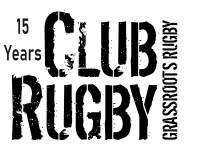Wellington?s champion club teams: Part 3

The Jubilee Cup winning Hutt team of 1934 with the inaugural McBain Shield after beating Petone 6-5.?
From the beginning of competitions to right up to the present day, we’ve chosen 25 of the most noteworthy or memorable Wellington club rugby Senior/Premier championship winning teams, Here’s the stories of five club teams that stood out between 1934 and 1948, the years before and just after World War Two.
Hutt 1934
Played 18.Won 16.Lost 2.Points for 262. Points against 126
Not for the first time, a team went into the final match of the season missing their best players to representative duty. Two of Hutt’s key players, five-eighth Herb Lilburne and lock/flanker Ned Barry, were in Sydney with the All Blacks on the day of the 1934 Jubilee Cup showdown between Hutt and defending champions Wellington College Old Boys. Indeed, the kick-off time at Athletic Park was brought forward to 2.30 pm to give fans the chance to gather around a wireless and listen to the All Blacks-Australia commentary from late afternoon.
Going into the final match of the season, Hutt were on 26 points and WCOB 25. Two competition points were awarded for a win and one for a draw, so Hutt just needed to avoid losing to claim their second championship in three years. Just as well, as the final score was 0-0 after a hotly contested match played in appalling weather.
Hutt, who had booked their place in the final with a 14-7 win over Marist a fortnight earlier, went on to supply 10 players to the 1934 Wellington representative team, including star playmaker and 30-game All Black Lilburne who defected to rugby league the following season. 1934 was also the year that Hutt and Petone first played the McBain Shield with Hutt winning 6-5. Similarly, a new grandstand was opened at the Hutt Rec in 1934 on the day Hutt beat University 21-0 (which would be burnt down in 1998). Including two pre-season wins over Masterton and Oriental, Hutt’s only two losses in 1934 were both to Poneke - 6-9 and 9-16.
Athletic 1937
Played 16.Won 14.Lost 2.Points for 226. Points against 95
After a decade-long title drought, one of Wellington’s most prominent clubs won back-to-back Jubilee Cups in 1936-37. The 1937 win marked Athletic’s Diamond Jubilee celebrations, which took place over Easter and during which the Senior team played and lost a pre-season friendly with Wellington, whom they had played their first game against 60 years previously.
Captained by representative loosehead prop Jock Wells they beat Wellington 9-8 in their championship season opener a few weeks later, starting a run of 13 wins in 15 games that gave them a 2-point lead over second-placed Wellington College Old Boys heading into a two-week club rugby hiatus owing to the 1937 Springbok tour. The South Africans duly beat Wellington 29-0 and then lost to the All Blacks 7-13 on Athletic Park in the space of a week. Upon the resumption of club rugby, Athletic again defeated Wellington 20-0 and retained the title.The team featured Eric Tindill, who is the only man to have ever represented New Zealand in both Test rugby and Test cricket.
Predominantly a halfback “Snowy” Tindill also played representative rugby at first five-eighth, and additionally represented Wellington at football. His one Test match, amongst the 17 matches he played for the All Blacks, was the famous ‘Obolensky’ loss to England at Twickenham. He missed the 1937 Springbok Tour as he was away with the national cricket side in England where he played three tests. After service in World War Two Tindill played two further cricket tests, one each against Australia and England.

He also later both refereed Test rugby (3 matches)and umpired Test cricket (1 test) for a unique ‘double-double’; and was a leading administrator and selector in both sports for many years.He remained a lifelong supporter and administrator of Athletic and wrote the club’s history in 1976; and at the time of his death in 2010 aged 99 he was both the oldest living All Black and test cricketer.
Wellington 1939
Played 16.Won 13.Lost 2.Drew 1.Points for 239. Points against 145
A shortlist of the most influential players in Jubilee Cup winning teams would include Wellington FC fullback Jack Taylor, who was a colossus in a backline that was too slick for most sides of the time. Time and again Taylor’s name comes up in Dominion newspaper match reports for his outstanding defence, organisation on attack and for his top-drawer kicking skills. The incumbent All Black fullback at the time, he had recently moved to Wellington from Pirates in Dunedin and was part of a back division that was the best in the competition. The team was captained by outstanding forward Malcolm McGregor Cooper who had played for Scotland whilst studying at Oxford University.
Wellington set the tone early for their vintage season, winning 10 of their first 11 games, their only loss in this period being to Athletic (12-14), who they also lost to again several weeks later (8-12). They bounced back quickly from this second defeat to Athletic to edge Petone 18-17 in front of a massive crowd and win the Jubilee Cup with a round to spare, Taylor kicking a dropped goal from halfway that made the difference. The title in the bag, they cruised past Marist Brothers Old Boys 35-20 in the final match of the season.
1939 was special for Wellington, as the second XV also won the Senior B championship. The A side was coached by former All Black and Wellington FC halfback Frank Kilby, while Taylor went on to coach Wellington who won the Jubilee Cup in 1947 following the war that claimed the lives of 85 Axemen.
University 1946
Played 14.Won 11.Lost 2.Drew 1.Points for 163. Points against 97
Aftersix years of war and the domination in these years by three clubs - Athletic, Petone, and a combined Poneke-Oriental - the public were clamouring for the return of top-class, uninterrupted rugby and for a changing in the guard amongst the title contenders.
They were rewarded on both fronts by the positive play of University who emerged as surprise Jubilee Cup winners in 1946. University opened their season with a decisive 16-6 victory over defending champions Athletic. They then lost consecutive matches to Wellington College Old Boys (9-11) and Marist (5-13) before stringing together 10 wins and a draw. Written off as a ‘bunch of college boys’ by opposing captain G.R Wales, University made mincemeat of Athletic’s forwards in the final and deciding match of the season. With a 16-3 win, the unheralded side had won the Jubilee Cup for the first time since 1929.
The team was captained by ex-Canterbury and New Zealand Universities player Dick Burke. Burke had also captained the New Zealand Services side in 1945 against a New Zealand XV.
Six University players played for Wellington in 1946: Burke, Hal Greig, Sam Meads, Pat Murphy, Ray Shannon and Ranfurly Jacob. Jacob also made the New Zealand Maori team, becoming the third University player to do so.
Marist Brothers Old Boys 1948
Played 16.Won 13.Lost 1.Drew 2.Points for 181. Points against 101
Marist Brothers Old Boys were the dominant Wellington club rugby team of the early 1960s, winning outright or sharing the Jubilee Cup in 1960 and from 1962-64. Prior to this they had enjoyed double success in 1948 and 1950. Their first win in 1948 was emphatic; apart from losing just once all season, their aggregate of 28 championship points in 16 matches equalled that of Athletic’s in 1937, a total only bettered by University’s tally of 29 in 1929.
In addition to winning the Jubilee Cup in 1948, Marist Brothers Old Boys won the New Zealand Marist Federation Spillane Cup for the first time in 13 years and also won the National Mutual Cup.
The team was coached by29-year old Jack Dive and 1920s Hawke’s Bay All Black Tom Corkill. Captain Michael Ward led a well-drilled forward pack and Des Lyons, Mick Hourigan and former North Island and South Island representative fullback Ray O’Callaghan were key backs.
O’Callaghan, who hailed from the West Coast and also played for Canterbury, went on to play one Test for the All Blacks against Australia in 1949 as a second five-eighth and goal-kicker. He was later coach of the Marist Old Boys side that shared the Jubilee Cup with University in 1964.
Marist defeated Athletic in the 1948 Jubilee Cup final. The following year saw St Pat’s Old Boys jointly win the title with Petone. Marist Old Boys and St. Pat’s Old Boys later amalgamated in 1971 to form today’s Marist St. Pat’s club.
References
Photo credit: Hutt Rugby Club, Senior A team, 1934. Crown Studios Ltd :Negatives and prints. Ref: 1/2-202842-F. Alexander Turnbull Library, Wellington, New Zealand. http://natlib.govt.nz/records/22461279
The Evening Post and Dominion newspapers 1934-1948Tindill, Eric. History of the Athletic Football Club, 1877-1976. Wellington. Prestige Print, 1977.Donoghue, Tim. Athletic Park : a lost football ground.? Tim Donoghue Publications in association with the Wellington Rugby Football Union, 1999.
Anderson, John. Victoria University of Wellington Rugby Football Club : the story of the green and golds, 1902-1987. Wellington. The Club, 1988.
C.W. Dudding and F.K. Goldfinch. Hutt Rugby Football Club (incorporated) : golden jubilee souvenir booklet. Hutt, N.Z. : The Club, 1962
Veysey, Alex. A century of rugby : a history of the Wellington Football Club's first hundred years. Wellington : Wellington Football Club, 1970.
Steven White, 19 Mar 2019
Adam Julian, 19 Mar 2019
Steven White, 12 Mar 2019
Adam Julian, 04 Mar 2019
Steven White, 12 Feb 2019








.jpg)





